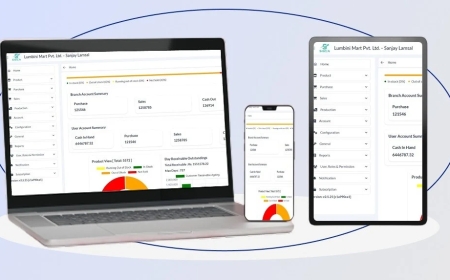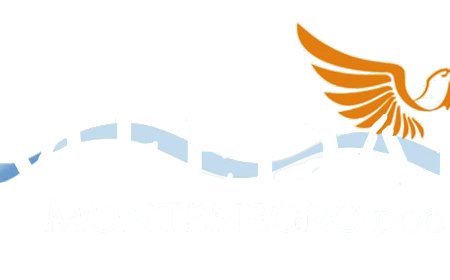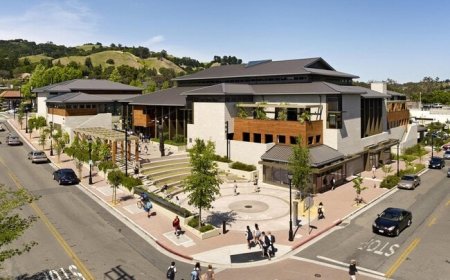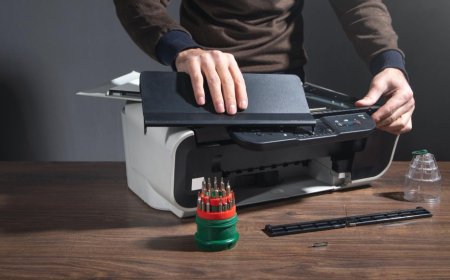How to Get a Free Upgrade at Check-In in Las Vegas
How to Get a Free Upgrade at Check-In in Las Vegas Las Vegas is more than just a city of lights and casinos—it’s a destination where luxury, entertainment, and unexpected perks converge. For travelers, one of the most sought-after yet elusive experiences is walking into a hotel lobby and being offered a free room upgrade at check-in. Whether you’re staying at a towering resort on the Strip like th
How to Get a Free Upgrade at Check-In in Las Vegas
Las Vegas is more than just a city of lights and casinosits a destination where luxury, entertainment, and unexpected perks converge. For travelers, one of the most sought-after yet elusive experiences is walking into a hotel lobby and being offered a free room upgrade at check-in. Whether youre staying at a towering resort on the Strip like the Bellagio, Caesars Palace, or the Wynn, or a boutique property off the beaten path, securing an upgrade can transform an already memorable trip into something extraordinary. Imagine stepping into a suite with a breathtaking view of the fountains, a larger balcony, or even a private whirlpoolall without paying extra. This guide reveals the proven, ethical, and highly effective strategies to increase your chances of receiving a complimentary room upgrade in Las Vegas. No gimmicks. No tricks. Just actionable, real-world tactics used by seasoned travelers and insiders.
The importance of understanding how upgrades work cannot be overstated. Hotels in Las Vegas operate on a dynamic inventory model, where room availability fluctuates hourly based on bookings, cancellations, and group reservations. Unlike traditional hotels, Las Vegas properties often overbook certain room categories to maximize revenue, which creates a natural buffer for upgrades. Knowing how to position yourself at check-innot just as a guest, but as a valuable customercan turn a standard room into a premium experience. This guide will walk you through every step, from pre-arrival preparation to the exact phrases to use at the front desk, backed by real examples and industry insights.
Step-by-Step Guide
1. Book Strategically: Choose the Right Rate and Property
The foundation of every successful upgrade begins before you even pack your bags. Not all bookings are created equal. Start by selecting a property known for generous upgrades. Resorts like the Wynn, Encore, The Venetian, and Aria are more likely to offer complimentary upgrades than budget chains or smaller off-Strip hotels. Why? Because their brand reputation thrives on delivering exceptional guest experiences, and upgrades are a low-cost way to create word-of-mouth buzz.
When booking, avoid the lowest-tier non-refundable rates. While these may seem like a bargain upfront, they often come with restrictions that make upgrades nearly impossible. Instead, opt for flexible or refundable rateseven if they cost $20$50 more per night. These rates give the hotel more operational flexibility and signal to staff that youre a serious guest who may return. Many loyalty programs also reward flexible bookings with higher status points, which well cover later.
Consider booking directly through the hotels official website rather than third-party platforms like Expedia or Booking.com. Hotels prioritize direct bookings because they retain 100% of the revenue and have full access to your guest profile. Third-party bookings often come with limited data, making it harder for staff to recognize your value or loyalty history.
2. Join the Hotels Loyalty Program (Even If Youre Not a Frequent Traveler)
One of the most overlooked but powerful tools for securing upgrades is enrolling in the hotels loyalty programeven if youve never stayed there before. Most Las Vegas resorts operate under major loyalty networks: Caesars Rewards, MGM Rewards, Wynn Rewards, and Marriott Bonvoy (for properties like The Cosmopolitan or JW Marriott). Signing up is free and takes less than two minutes.
Why does this matter? When you check in, the front desk agent sees your loyalty status instantly. Even if youre a Gold or Silver member with just one prior stay, it signals to staff that youre a repeat guestor at least someone who understands the system. Agents are incentivized to reward loyalty, and many have discretionary upgrade inventory reserved specifically for members.
Pro tip: When you sign up, use your full name, correct contact information, and mention any special occasions (anniversary, birthday, honeymoon) in your profile. These details appear during check-in and can trigger a spontaneous upgrade as a gesture of goodwill.
3. Request an Upgrade in Advance (But Dont Demand It)
Dont wait until you arrive at the front desk to ask for an upgrade. A well-timed email or phone call 24 to 72 hours before check-in can make all the difference. Send a polite, concise message to the hotels reservations or guest relations team. Use this template:
Dear [Hotel Name] Team,
Im looking forward to my stay from [check-in date] to [check-out date] under the reservation name [Your Full Name]. Ive booked a [current room type] and would be incredibly grateful if an upgrade to a higher categorysuch as a Strip-view room or suitecould be accommodated, should availability allow. Im a loyal member of [Loyalty Program, if applicable] and truly appreciate your hospitality. Thank you for considering my request.
Send this via the hotels official website contact form or email address (not a general customer service line). Avoid sounding entitled. The goal is to plant a seed, not make a demand. Many front desk agents review advance requests before their shift and may pre-allocate an upgrade if one becomes available.
4. Arrive During Off-Peak Hours
Timing matters. The best window for upgrades is between 3 p.m. and 6 p.m. on weekdays, especially Tuesday through Thursday. Why? This is when the hotels inventory is most fluid. Early arrivals (before 3 p.m.) often find rooms still being cleaned. Late arrivals (after 8 p.m.) mean the front desk is overwhelmed, and staff have less time to manually search for upgrades.
Weekends and holidays are the worst times to ask. High demand means fewer available roomsand fewer upgrades. If youre flexible with your arrival time, consider checking in on a Tuesday afternoon. Youll encounter a calmer front desk, more available inventory, and agents who are more likely to go the extra mile.
5. Dress Well and Present Yourself Confidently
First impressions are everything. While it may sound superficial, how you present yourself at check-in directly impacts your chances. Staff are human, and they respond to cuespoliteness, confidence, and perceived value. You dont need to wear a suit, but avoid sweatpants, flip-flops, or overly casual attire. Neat, clean, slightly elevated clothing signals that youre a guest who appreciates luxury and may become a repeat customer.
Smile. Make eye contact. Be courteous to every staff member you encounter, from the valet to the concierge. A friendly demeanor can trigger subconscious positive associations. If youve had a long flight, acknowledge it: Weve been traveling all daythank you for making this so smooth. This humanizes you and builds rapport.
6. Use the Right Language at the Front Desk
How you phrase your request is critical. Avoid saying: Can I get an upgrade? or I want a better room. These sound transactional and entitled. Instead, use open-ended, appreciative language:
- I was wondering if there might be any complimentary upgrades available todayId love to make the most of my stay.
- Ive heard great things about your [Strip-view rooms/suites]. Is there any chance one might be available?
- Im celebrating [special occasion], and Id really appreciate any little extra touch you could offer.
Notice the absence of demands. Youre inviting the agent to help younot obligated to fulfill a request. This approach triggers the reciprocity principle: people are more likely to give when they feel theyre being asked kindly, not forced.
7. Be Willing to Accept a Noand Ask for Alternatives
Not every request will be granted. If the agent says, Im sorry, were fully booked on upgrades today, dont argue. Instead, pivot gracefully:
I completely understand. Is there perhaps a room with a better view or a higher floor that might be available? Even a slight improvement would mean a lot.
Often, agents can offer a view upgrade (e.g., from courtyard to Strip) or a floor upgrade (e.g., from 15th to 25th floor) without changing the room category. These are easier to approve and still significantly enhance your experience. Many guests dont realize that a higher floor with a better view is often just as valuable as a suite.
8. Tip the Front Desk Agent (Discreetly)
While tipping is not required, a small, discreet gesture can make a meaningful difference. In Las Vegas, where service culture runs deep, a $10$20 cash tiphanded over with a genuine thank-youcan be the deciding factor. Do not hand it over while asking for the upgrade. Wait until after the agent has processed your check-in and handed you your key. Say, Thank you so much for your help. This really made my arrival special. Then place the envelope or bill on the counter.
This isnt briberyits appreciation. Agents work long hours under pressure. A small token acknowledges their effort and increases the likelihood theyll remember you and go out of their way for you on future visits.
9. Leverage Special Occasions
Las Vegas hotels are experts at creating memorable moments. If youre celebrating a birthday, anniversary, honeymoon, or even a promotion, mention it during booking or check-in. Hotels often have complimentary perks reserved for these occasions: champagne, dessert, late checkout, or a room upgrade.
Dont just say, Its my birthday. Be specific: Were celebrating our 10th anniversarythis is our first trip to Vegas, and weve dreamed of staying here for years. Emotional stories resonate. Staff are trained to recognize and respond to heartfelt moments.
Pro tip: Book a romantic package or honeymoon add-on through the hotels website. Even if you dont pay extra, the system flags your reservation as a celebration stay, increasing upgrade eligibility.
10. Stay Late or Extend Your Stay
If youre checking out on a Sunday and want to extend your stay by one night, ask if you can stay longer. Hotels often have last-minute cancellations on Sunday nights, especially after weekend events. If youre flexible, say: Id love to extend my stay by one night if possible. Would there be any availability in a higher category?
Agents may offer you a free upgrade for the additional night as an incentive to extend. Even if you dont stay longer, the request signals flexibility and interest in the propertyqualities that make you a desirable guest.
Best Practices
1. Build Relationships, Not Just Reservations
The most successful upgrade seekers dont treat Las Vegas hotels as transactional stops. They treat them as destinations to build relationships with. If you visit the same resort multiple times, remember the names of staff youve interacted with. Mention them on your next visit: Hi, I stayed here last year and loved speaking with Maria at the front desk. Personal recognition triggers loyalty rewards far beyond any algorithm.
2. Be Patient and Respectful
Front desk agents have quotas, shift limits, and hundreds of guests to serve. Pushing too hard or becoming frustrated will backfire. Patience and respect are your most powerful tools. If an upgrade isnt possible today, thank them anyway. You never know when a cancellation might open up later in the dayor when you return next year.
3. Avoid Over-Booking or Group Reservations
Group bookings (e.g., bachelor parties, corporate retreats) are often locked into fixed room categories. If youre traveling with a large group, individual upgrades are unlikely. For the best chance, book separate rooms under individual names. Even if youre paying together, having separate reservations gives each guest a shot at an upgrade.
4. Dont Rely on Social Media
While posting about your stay on Instagram or Twitter might seem like a clever tactic, it rarely results in an upgrade. Hotels receive thousands of social media messages daily. A public plea for an upgrade can come across as performative. Save your social posts for after youve received the upgrade as a thank-you notenot as a bargaining chip.
5. Use Your Travel Credit or Points Wisely
If you have hotel points or travel credit, dont use them to book the cheapest room. Instead, use them to pay for a mid-tier room, then ask for an upgrade. This shows youre willing to invest in your stay, making you a more attractive candidate for a complimentary enhancement.
6. Know When to Walk Away
If the hotel is at 100% capacity, the upgrade request is impossible. In those cases, focus on other complimentary perks: late checkout, free breakfast, or a drink voucher. Sometimes, the best upgrade isnt a bigger roomits extra time, service, or amenities.
Tools and Resources
1. Hotel Loyalty Program Websites
Always check the official loyalty program site for your chosen hotel. Caesars Rewards, MGM Rewards, and Wynn Rewards offer member-only deals, early check-in options, and upgrade alerts. These portals often show real-time room availability and special promotions.
2. Room Upgrade Tracking Apps
While there are no apps that guarantee upgrades, tools like Hopper and HotelTonight can help you monitor price drops and last-minute availability. If a higher category suddenly becomes cheaper than your current booking, you can cancel and rebooksometimes triggering an automatic upgrade offer.
3. Google Maps and Street View
Before you arrive, use Google Maps Street View and satellite imagery to scout the hotels room layouts. Identify which wings have the best views (e.g., north-facing rooms at the Cosmopolitan overlook the Bellagio fountains). Mentioning this knowledge at check-in (I noticed the north towers have the best fountain viewsany chance I could get one?) demonstrates research and intentionality.
4. Travel Forums and Reddit Communities
Subreddits like r/LasVegas and r/travel offer real-time advice from travelers whove just secured upgrades. Search for [Hotel Name] upgrade success story to find recent examples. Youll learn which agents are known for generosity, which days yield the best results, and which room numbers have the best views.
5. Hotel Concierge Services
Dont underestimate the power of the concierge. If youre staying at a luxury property, visit the concierge desk on your first dayeven if you dont need anything. Introduce yourself, ask for recommendations, and express your appreciation. Over time, they may proactively offer you an upgrade for a future night or during your next visit.
6. Google Alerts for Hotel Promotions
Set up a free Google Alert for [Hotel Name] + upgrade + promotion. Youll receive notifications when the hotel runs limited-time offers, such as Book now, get a complimentary suite upgrade. These are rare but highly valuable.
Real Examples
Example 1: The Wynn A Honeymoon Surprise
A couple from Chicago booked a standard room at The Wynn for their 5th anniversary. They joined Wynn Rewards a week before arrival and emailed the hotel to mention their celebration. On check-in, they were greeted by name and offered a complimentary upgrade to a Deluxe Strip View Suite. The agent said, We saw your anniversary note and thought you deserved something special. They received champagne, a dessert platter, and a late checkoutall without paying extra. They returned the following year and received another upgrade.
Example 2: Caesars Palace The Loyalty Advantage
A frequent traveler with Silver status in Caesars Rewards arrived at Caesars Palace with no upgrade request. At check-in, the agent noticed his loyalty status and said, We have a last-minute cancellation in the Forum Tower. Would you like to move into a King Suite with a partial Strip view? He accepted and saved $320. The agent later told him, We save upgrades for members whove stayed with us before. Youre on our radar.
Example 3: The Cosmopolitan The Discreet Tip
A solo traveler checked in on a Tuesday afternoon and asked politely for a view upgrade. The agent said no. As he was leaving the desk, he placed a $15 tip on the counter with a note: Thank you for your time. The agent called him back 10 minutes later: We just had a cancellation. Youre now in Room 2210full Strip view, 25th floor.
Example 4: The Venetian The Flexibility Win
A family booked a standard suite for a weekend getaway. On arrival, they were told no upgrades were available. The father asked, Would you consider a different suite on a higher flooreven if its the same size? The agent found a room on the 30th floor with a panoramic view. The family didnt get more square footage, but the view made their entire trip unforgettable.
Example 5: The Bellagio The Off-Peak Strategy
A business traveler arrived at Bellagio at 4 p.m. on a Thursday. He was a Marriott Bonvoy member and mentioned hed been looking forward to staying there for years. The agent checked availability and said, We have one upgrade lefta one-bedroom suite. Would you like it? He accepted. The suite was valued at $850/nighthe paid $320. The agent added, Youre exactly the kind of guest we want to reward.
FAQs
Can you get a free upgrade if youre not a loyalty member?
Yes. While loyalty status increases your chances, many upgrades are given based on availability, demeanor, and timing. Guests without loyalty status have received upgrades by arriving during off-peak hours, dressing well, and asking politely.
Do I need to pay extra to request an upgrade?
No. A true complimentary upgrade requires no additional payment. If a front desk agent asks you to pay for an upgrade, thats a paid enhancementnot a free one. Always confirm: Is this complimentary? before agreeing to any charge.
What if the hotel says no to an upgrade?
Thank them anyway. Ask if theres a view upgrade, a higher floor, or a late checkout available. Many hotels offer these as alternatives. Even if you dont get a bigger room, you may get a better location or extended time.
Are upgrades more likely during certain seasons?
Yes. Winter months (JanuaryMarch) and early fall (SeptemberOctober) tend to have lower occupancy, increasing upgrade availability. Summer and major event weekends (New Years Eve, CES, UFC fights) are the least likely times.
Can I ask for an upgrade at the pool or restaurant?
Not recommended. Front desk agents have the authority and inventory access to approve upgrades. Other staff may not. Always make the request at check-in or in advance via official channels.
Do online reviews help get upgrades?
Not directly. But if youve left a positive review on Google or TripAdvisor, staff may see it during check-in and feel encouraged to reward your loyalty. Its an indirect benefit.
Is it ethical to ask for a free upgrade?
Yes. Hotels build upgrade inventory into their pricing model specifically to enhance guest satisfaction. Its a standard industry practicenot a loophole. As long as youre polite and respectful, youre not taking advantageyoure participating in a system designed to delight guests.
What if Im traveling with kids? Can I still get an upgrade?
Absolutely. Families are often prioritized for upgrades, especially if theyre celebrating a milestone. Mentioning children in your request can trigger family-friendly perks like connecting rooms, cribs, or suite access.
Can I get an upgrade on a free night using points?
Yes. Many loyalty programs allow upgrades even on award stays. When redeeming points, select the base room and then ask at check-in if a higher category is available. The hotel may upgrade you at no additional point cost.
Conclusion
Getting a free upgrade at check-in in Las Vegas isnt luckits strategy. Its about understanding the inner workings of luxury hospitality, positioning yourself as a valued guest, and approaching the process with patience, respect, and intelligence. The hotels dont give upgrades to those who demand them. They give them to those who inspire them.
By booking wisely, joining loyalty programs, arriving at the right time, and communicating with grace, you dramatically increase your odds of stepping into a suite you didnt pay for. The stories weve shared arent anomaliestheyre repeatable outcomes for anyone willing to follow the rules of the game.
Remember: Las Vegas thrives on magic. The city doesnt just sell roomsit sells experiences. And the most powerful experience you can create isnt the view from your window, but the impression you leave at the front desk. Be kind. Be prepared. Be memorable. And when you walk into that upgraded room, youll know it wasnt a fluke. It was earned.
Start planning your next trip with these strategies in mind. The next upgrade might be waiting for youjust beyond the check-in counter.

























